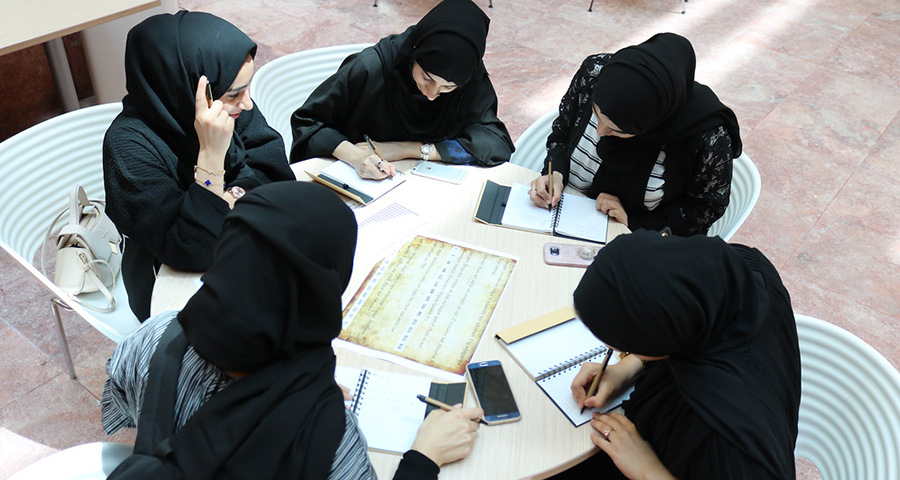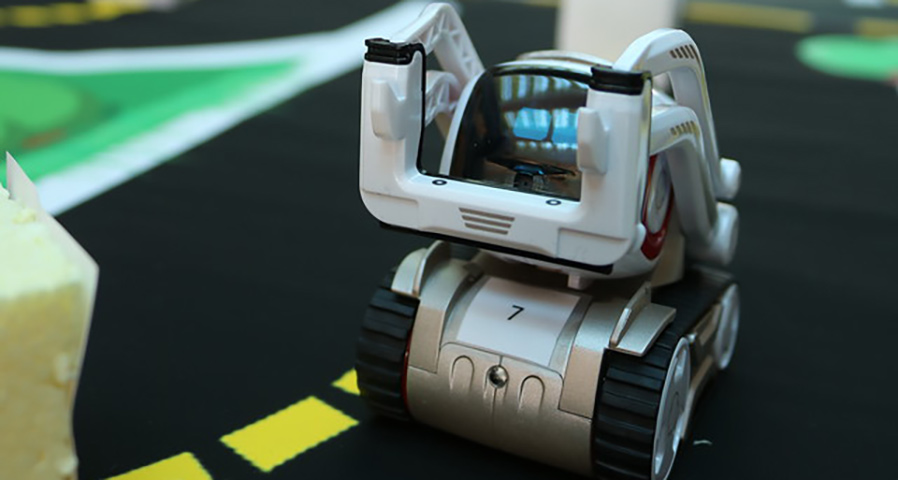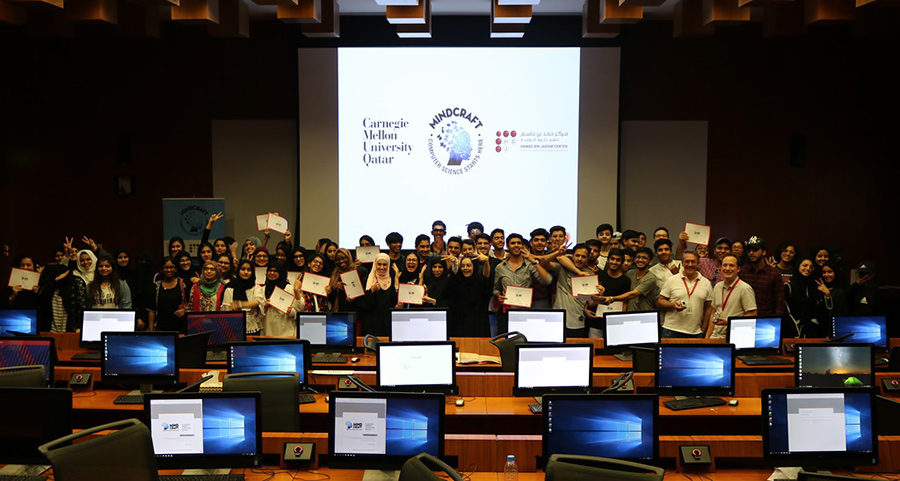
Mindcraft workshops introduce high school students to computer science
CMU-Q’s Mindcraft program kicked off its first year of workshops as part of the Hamad bin Jassim Center for K-12 Computer Science Education. The center, which has the mission to promote computer science education in schools throughout Qatar, is a partnership between the Jassim and Hamad Bin Jassim Charitable Foundation and Carnegie Mellon University in Qatar.
This will be the third year that CMU-Q has run Mindcraft workshops for high school students. “In the last two years, more than 2,200 high school students have attended Mindcraft,” said Khaled Harras, the program director for computer science at CMU-Q. “Thanks to the Hamad bin Jassim Center, we can continue to introduce students to computer science, which is a fundamental bedrock for advancing knowledge nowadays in nearly every field of study.”
An essential part of Mindcraft is the conceptual workshop that introduces students to computational thinking. “The students don’t even touch a computer during this portion,” said Harras. “They learn the basics of how to search, sort and break codes through games and puzzles.” These exercises teach students the basics of problem solving so they understand how computers process information.
The second part of the Mindcraft workshop is an artificial intelligence workshop where students get hands-on experience programming a robot. Nour Tabet, outreach coordinator for computer science, noted that the new Mindcraft robots allow them to craft new challenges for the students: “The new robots allow for facial recognition and image processing, and the response from the students has been very good.”

The new Mindcraft robot, Cozmo
Mindcraft workshops challenge students at a variety of different levels. About 40 percent of the participants have never studied computer science, so Harras and Tabet have crafted the program to be accessible to beginners.
At the same time, the workshop should be challenging to students who are familiar with computing concepts. Each workshop has levels of increasing difficulty. After two years and more than 2200 participants, only two teams have ever completed all of the challenges.
“The workshops are set up in stages, so every student can solve at least one, but the final stages are very challenging,” said Harras. “The students are engaged and motivated during Mindcraft. We do our best to not have kids sitting on the sideline.”

The first Mindcraft participants of the 2018-19 academic year
Learn more about Mindcraft and apply to be a participant.
